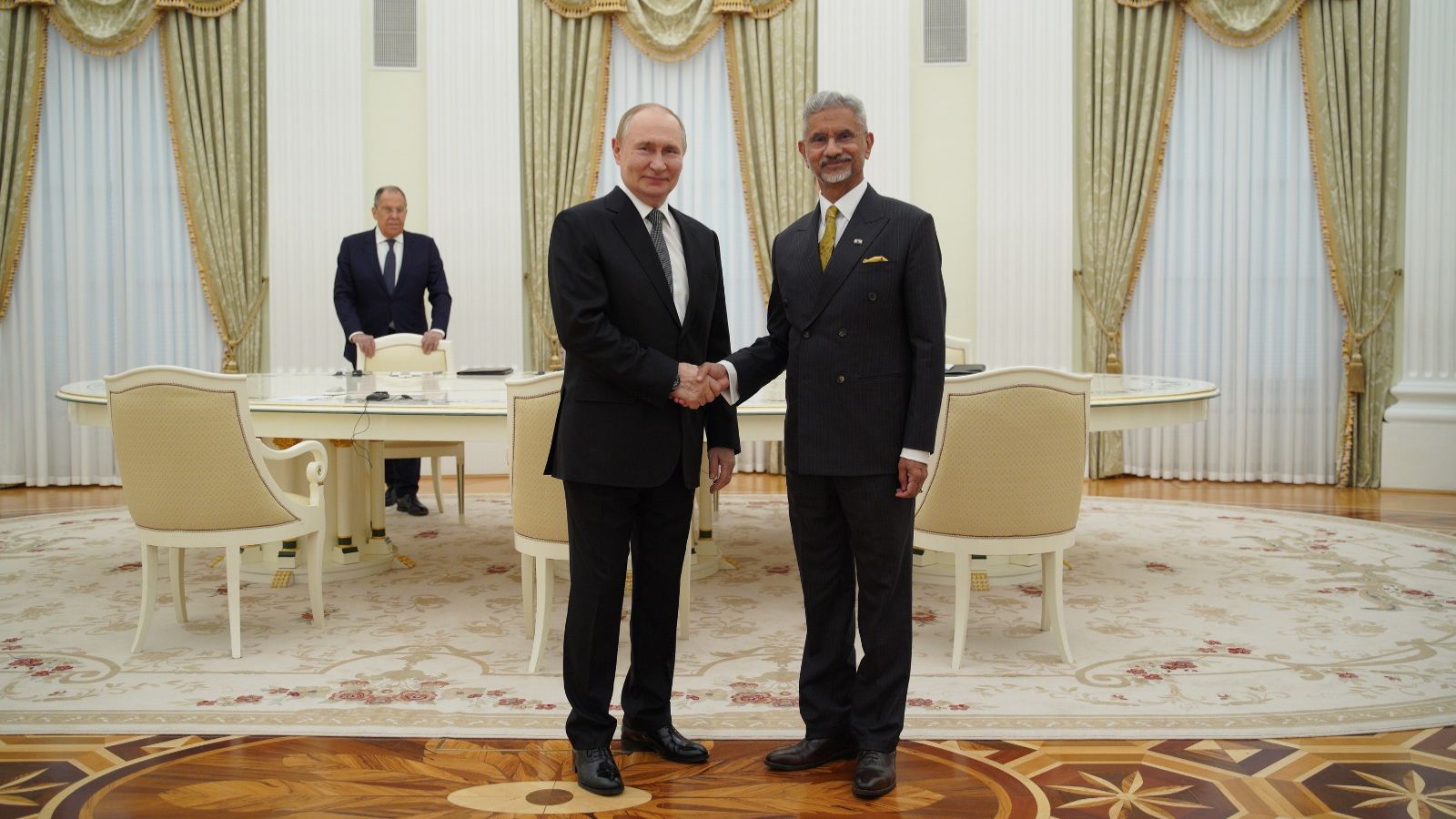Taking a swipe at the Trump administration from Moscow, External Affairs Minister S Jaishankar said Thursday he was “very perplexed” by the additional 25 per cent US tariff on India over energy imports from Russia because “it was the Americans” who said “we should do everything to stabilise the world’s energy markets, including buying oil from Russia”.

“We are a country where actually the Americans said, for the last few years, that we should do everything to stabilise the world’s energy markets, including buying oil from Russia. We also buy oil from America, and that amount has been increasing. So quite honestly, we are very perplexed at the logic of the argument,” he said.
US officials and ministers, including Treasury Secretary Scott Bessent, White House Trade Advisor Peter Navarro, and President Donald Trump himself, have criticised India for buying Russian oil and fuelling the Russian war machine.
The External Affairs Minister’s statement from the Russian capital is a sharply-worded retort to the Trump administration’s tirade against India, especially its imposition of an additional 25 per cent tariff penalty over purchase of Russian oil.
On a three-day visit to Russia, Jaishankar met Lavrov and said India-Russia ties have been among the “steadiest of the major relationships in the world after the Second World War”.
The two sides agreed to sustain energy cooperation through trade and investments.
Story continues below this ad
Lavrov said, “We have good results in cooperation in the hydrocarbon sector, in the supply of Russian oil to the Indian market. And we have a mutual interest in implementing joint projects for the extraction of energy resources, including in the Russian Federation – in the Far East and on the Arctic shelf.”
A day earlier, Jaishankar met Russian First Deputy Prime Minister Denis Manturov and said they should tap into “full potential of trade and investment ties”.
On trade and economic cooperation, Jaishankar, referring to his meeting with Manturov, said, “We reaffirmed our shared ambition to expand bilateral trade in a balanced and sustainable manner, including by increasing India’s exports to Russia. This requires swiftly addressing non-tariff barriers and regulatory impediments. Enhancing Indian exports to Russia in sectors like pharmaceuticals, agriculture and textiles will certainly help to correct the current imbalance.”
“Steps to ensure long-term supply of fertilisers were also taken up. Indian skilled workers, especially in IT, construction and engineering, can address the labour needs in Russia and deepen collaboration. Sustaining energy cooperation through trade and investments is also important,” the said.
Story continues below this ad
Describing the meeting as a “comprehensive review” of the entire gamut of bilateral relations, he said, “We believe that relations between India and Russia have been among the steadiest of the major relationships in the world after the Second World War. Geopolitical convergence, leadership contacts and popular sentiment remain its key drivers.” He was referring to the two visits Prime Minister Narendra Modi made to Russia last year, and two phone calls this month around Putin’s meeting with Trump in Alaska.
On the connectivity initiatives between India and Russia, he said, “We also spoke about the connectivity initiatives including the International North-South Transport Corridor, the Chennai–Vladivostok eastern maritime corridor, and cooperation in the Northern Sea Route. These corridors promise to deepen economic linkages, reduce transit times, and expand trade access across Eurasia and beyond.”
In a reference to the legacy defence relationship with Russia since the Soviet Union era, he underlined that “defence and military-technical cooperation also remain robust. Russia supports India’s ‘Make in India’ goals, including through joint production and technology transfer.”
India’s dependence on Russia for defence equipment and spares is in the range of 60 to 70 per cent, and the air defence system S-400 is one of the equipment that helped India defend itself against Pakistan during the hostilities that followed Operation Sindoor in May.
Story continues below this ad
On terrorism, especially cross-border terrorism emanating from Pakistan, Jaishankar said, “We resolved to fight jointly against all forms and manifestations of terrorism. I conveyed India’s strong resolve to adopt a zero-tolerance policy against terrorism and our sovereign right to defend our citizens against cross-border terrorism.”
The two ministers discussed Ukraine and the Indians serving in the Russian Army.
Jaishankar said, “I took up the issue of Indians serving in the Russian Army. While many have been released, there are still some pending cases and some missing persons. We hope that the Russian side will expeditiously resolve these matters.”
Of the 127 Indians who joined the Russian armed forces, 97 were discontinued from service and brought back. At least 18 Indian nationals remain in the Russian armed forces, of which 16 individuals have been reported as missing by the Russians.
Story continues below this ad
On regional issues, Jaishankar said, “We discussed developments in Ukraine, Middle East, West Asia and Afghanistan, and I want to say that India’s approach continues to emphasise dialogue and diplomacy as essential to resolving differences.”
On global and multilateral cooperation, he said, “We reaffirmed our shared commitment to reform of global governance. We underlined the imperative to expand and energise the UN Security Council to reflect contemporary realities. Our collaboration in G20, BRICS and the SCO remains deep-rooted and forward looking.”
Putin and Modi are expected to meet on the sidelines of the SCO leaders meeting in Tianjin in China on August 31-September 1.
Jaishankar also said that the opening of two new Indian consulates – in Kazan and Yekaterinburg – need to be fast-tracked. “These consulates will further deepen our regional outreach and enhance trade and people-to-people ties,” he said.









